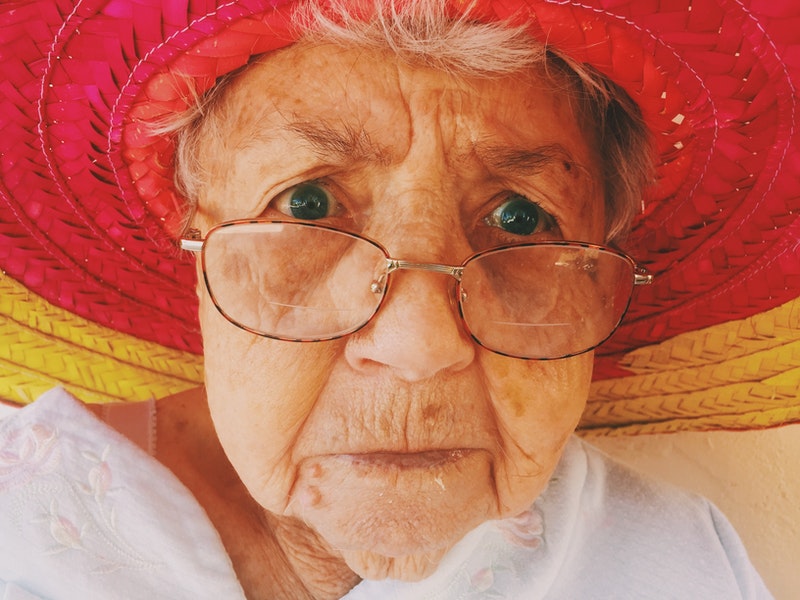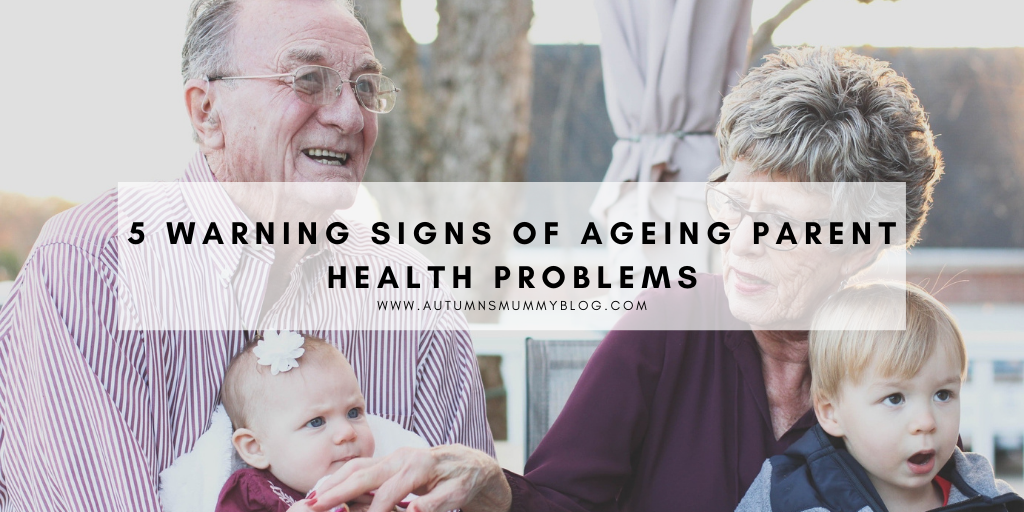Collaborative Post¦ During your childhood and twenties, your parents are, statistically speaking, in good health. But when you get to your thirties and forties, things begin to change. You may notice that they’re not as spritely as they once were. Mostly, this still isn’t a problem. But you become much more aware of the fact that their health could fail and they might need help. In this post, we take a look at some of the warning signs that indicate ageing parent health problems and what you can do about it.
Memory Loss

A little bit of memory loss or forgetfulness is a benign part of ageing. But if you notice that they keep asking the same questions over and over again, then there could be a problem and you may need to visit the doctor.
Here are some examples of memory problems that indicate a medical issue:
- Getting lost in familiar places
- Being unable to follow simple instructions
- Getting confused about time, people and places they know
Bruises And Injuries
If you notice bruises and injuries, it could be a sign of a serious issue. If your parents keep falling down, they may need a chair or walker. Or if other people are causing the injuries, you may need to move them to safe accommodation and hire a nursing home abuse lawyer.
Bruises tend to last much longer when people get older. So they may remain visible for months after the event.
Poor Spirits
Ideally, your parents should be in good spirits, filling their lives with fun activities and things that they want to do, especially if they are retired.
Sometimes, though, ageing parents can get into the habit of just sitting around the house all day. This type of lifestyle is problematic for multiple reasons. It means that your parents are more sedentary. And it puts them at a higher risk of depression and loneliness as well.
If you notice that your parents are in poor spirits, look for ways to break their routine. Think of new activities that they can enjoy and fold into their lives. If your parents live in a senior living community like Clover Group Buffalo, for example, there may even be activities in place, like fitness and wellness programmes or day trips and dinners, to help them to socialise and integrate back into life.
Unable To Get Around
As parents get older, they may start losing confidence in their ability to get around. For instance, they may no longer want to drive or take themselves to the grocery store on the bus.
If you notice this change in behaviour, find out whether the issues are to do with their body or their mind. Sometimes, older people can lose confidence in themselves, even if there isn’t actually a physical issue. However, this can then lead to mobility problems because they remain sedentary for so much of the day.
Lack Of Social Life
Lastly, when parents get older, they may cut back on their social life, using excuses like “it’s too much” or “I’m not interested in seeing other people.” Usually, these attempts to evade social contact emerge from underlying health problems. Hearing loss, for instance, can cause many elderly people to recede from social contact with others. If you notice withdrawal, take them to an audiologist for a checkup.
Disclosure: This is a collaborative post.
